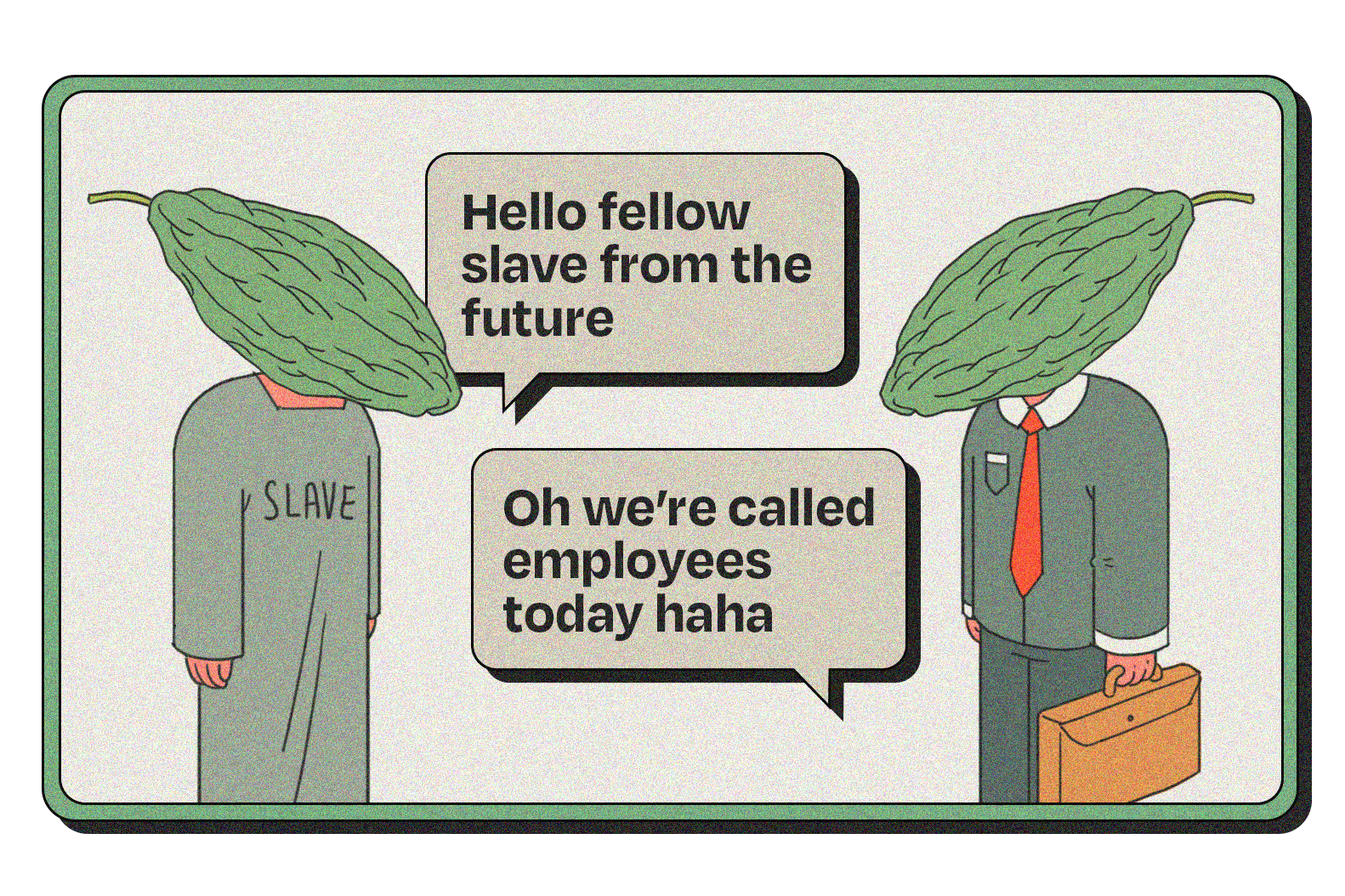It is uncanny that as I share on this topic today, several friends of mine are experiencing abuse at work or toxic workplaces. “Toxic workplace” refers to conflicts, abuse or unhappiness at work.
For one friend, the senior colleagues would bully him, overwork him, call him names, tell him that he’s incompetent and make him feel worthless.
For another friend, the boss appears on the surface to be polite. However, she would criticise him for doing things in a certain way even though she herself did the same.
She would suggest that he’s incompetent when in fact, it’s an issue of style and not substance. She would effectively “gaslight” him. To “gaslight” is to manipulate someone psychologically to make him doubt his own sanity or thoughts.
In such situations, we may see responses on two ends of a spectrum. One is to just quit immediately. The other is to quietly suffer.
In this message, I will first touch on 1 Peter 2:18-25. We will see what it teaches us about enduring suffering.
* Second, I will talk about possible responses to suffering injustice at work in today’s context.
Third, I will suggest how we can journey with colleagues enduring suffering injustice at work by being “toxin handlers” and offer some points to consider if we are the ones wittingly or unwittingly causing hardship to our colleagues.
1 Peter 2:18-25
At the start of this section in the letter, in 2:13, Peter wrote “Be subject for the Lord’s sake to every human institution”.
Human institutions at that time included the master-slave relationship.
“Servants, be subject to your masters with all respect, not only to the good and gentle but also to the unjust.”
Servants here refer to house slaves. At that time in the Roman Empire, and for a long time in the ancient world, slavery was a well-established social institution.
Generally, house slave conditions were not terrible. It was more like live-in domestic help.

Peter exhorted Christian slaves to be subject to their masters with respect even if the masters treated them unjustly.
Why would he say that? Well, legally speaking, slaves had no other options. Masters had absolute legal authority over slaves.
Slaves could not just resign and leave their positions unless they had redeemed themselves of their debts. So the only way out would have been the illegal way — running away.
Calling to endure suffering
“For this is a gracious thing, when, mindful of God, one endures sorrows while suffering unjustly. 20 For what credit is it if, when you sin and are beaten for it, you endure? But if when you do good and suffer for it you endure, this is a gracious thing in the sight of God.” (1 Peter 2:19-20)
The phrase “a gracious thing” means “commendable” or honourable. Peter says to endure undeserved sorrow and suffering while mindful of God is honourable before God.
He distinguishes suffering that’s deserved, such as when one has committed a wrong. That is nothing worth praising.
It’s also interesting how Peter adds “when mindful of God”.
To endure suffering but have no mindfulness of God is purposeless. Conversely, one who endures suffering mindful of God has hope.
Enduring suffering in and of itself may help us be better at enduring more suffering. But what’s the ultimate point of that?
It may teach us something about the situation, but what’s the point of that if it does nothing but bring us back to the same situation?
Perhaps it may make us have compassion for other people’s suffering. That may be good, but if after all the empathising, there’s no point in everybody’s suffering, what’s the point of that too?
Even if justice is not round the corner, even if God’s purpose is not yet apparent, we can entrust ourselves to God and hold on to hope.
A Christian who endures suffering mindful of God has hope because of two things.
First, she entrusts herself to a sovereign and just God who ordains purpose to suffering.
In 2:23, Peter refers to Jesus enduring undeserved suffering, who “continued entrusting himself to him who judges justly”.
Even if justice is not round the corner, even if God’s purpose is not yet apparent, we can entrust ourselves to God and hold on to hope.
Second, God works in the Christian’s spirit towards deeper communion with God.
That’s what Peter says in 2:21: “For to this you have been called, because Christ also suffered for you, leaving you an example, so that you might follow in his steps.”
To be clear, Christians are not called to suffering per se. Rather, it is a reality that suffering will happen to us in our lives.
And Peter says if we do suffer unjustly, we are called to endure suffering in the manner that Jesus did. It follows from what he said earlier in 1 Peter 1:15: “as he who called you is holy, you also be holy in all your conduct”.
Because we are called to God’s grace, we are also called to be holy in the same way that God is holy. To be holy is to be set apart from the world.
And that means that if we suffer in holiness, we must endure suffering in the same way that Jesus endured suffering, not the way the world does.
If we follow Jesus’ example in his suffering, we will know Him more intimately.
Peter uses the phrase “follow in the steps” of Christ.
I invite you to visually imagine retracing every step of Christ in first century Palestine.
Where He walked on the shore of the sea of Galilee. In the Temple in Jerusalem. And on the via dolorosa, the path in the Old Jerusalem where Christ was tortured, carried His cross to Golgotha and then finally hung on the cross for all to see.
If you were to go to Jerusalem today and retrace His steps, that would be a literal physical pilgrimage. And perhaps you would experience a deeper understanding of the passion of Christ.
My wife and I had the privilege of doing this several years ago. It was a humbling experience.

However, Peter calls us to endure suffering in the manner of Christ as a spiritual pilgrimage. This spiritual pilgrimage helps us have a deeper understanding of the passion of Christ. It helps us increase our gratitude for what He has done for us.
Paul wrote, “that I may know him … and may share his sufferings, becoming like him in his death” (Philippians 3:10).
Suffering like Christ enables us to know Him in the spirit.
So, a Christian who endures suffering with mindfulness of God has hope because (1) she entrusts herself to God, and (2) she grows in the spirit to know Christ more intimately.
At the start, I shared about two friends who were suffering at work.
One of them shared his reflections with me:
“It has really deepened my intimacy with God and given me an insight into suffering… a refined belief that only God is my joy and delight. Not man or the approval of man. That, and the fact that God remains sovereign in the middle of intense human persecution or unreasonableness. My prayers transformed from ‘please make it an easy day’ and ‘please help me to get it right’ to, ‘please help me continue to reflect Christ likeness and the fragrance of Christ whatever the circumstances’. ‘Not my will but Yours be done’ just felt so much more meaningful. Painful, but richer in depth.”
Suppose, though, that a Christian endures suffering with no mindfulness of God. What does that do? It bears no fruit in the spirit.
Instead, it will probably breed bitterness. The root of bitterness is a dangerous thing. Once it springs up, it can grow so big to make a person fail to obtain the grace of God (Hebrews 12:15).
Suffering, then, pushes us to two possible directions: Towards deeper communion with God, or bitterness against God.
The manner of Christ
Peter exhorts us to endure suffering in the manner of Christ.
“He committed no sin, neither was deceit found in his mouth. When he was reviled, he did not revile in return; when he suffered, he did not threaten, but continued entrusting himself to him who judges justly. He himself bore our sins in his body on the tree, that we might die to sin and live to righteousness. By his wounds you have been healed. For you were straying like sheep, but have now returned to the Shepherd and Overseer of your souls.” (1 Peter 2:22-25)
We learn these truths about Jesus enduring undeserved suffering.
- Jesus committed no sin to deserve suffering
- Jesus did not criticise in return though He was criticised
- Jesus did not threaten to use His power against His persecutors
- Jesus entrusted himself to God the Father for ultimate justice
- Jesus endured suffering for the sake of bearing our sin and healing us spiritually
So that we may die to sin and live to righteousness. So that we may return to Him, the Shepherd and Overseer of our souls.
I think Peter is saying that the suffering done to our physical bodies does not harm our souls. On the contrary, in enduring suffering like Jesus, we will be nursed in our soul by the Shepherd of our soul.
We can therefore endure suffering in the same manner as Jesus:
- We must not criticise back when unfairly criticised
- We must not threaten to, or in fact, use power or force against those who harm us
- We must not take revenge
- We entrust ourselves to God for ultimate justice
Importantly, Peter is also saying that we are not suffering for our sins. Because Jesus has already suffered for our sins.
That’s of course assuming that we in fact did not do anything wrong which deserves punishment.
The thing is, many times when we suffer for reasons unknown to us, our tendency is to believe that God is punishing us. And the tendency is to let bitterness take root.
Let us turn away from that false belief. Jesus has suffered for our sins. God may discipline us and grow us. But God will not punish us for our sin which Jesus has already borne on the cross.
Becoming like Christ
This spiritual pilgrimage of enduring suffering seems to have another effect. It bears witness about Christ to others.
Enduring suffering like Christ bears witness about Christ.
Peter says Christ suffered for you. Christ’s suffering was for the sake of your salvation.
What happens if you follow in the steps of Christ’s suffering?
Will you not grow into Christ-likeness? In your emulation of Christ, will you not then become an example of Christ to others?
I remember some time ago reading a testimony of a Christian who was being treated unfairly at work.
He initially felt angry but decided to stay on to finish up his time there, and he continued to do good work with a good attitude.
Sometime later, his ex-colleague told him that he observed his conduct and was positively impacted by it.
He then had the opportunity to share how his Christian faith anchored him through that time.
In following the steps of Christ’s suffering, you become a witness to them for the sake of their salvation.
Hence, when you endure suffering in the manner of Christ, you become an example of Christ to the non-Christians around you.
In following the steps of Christ’s suffering, you become a witness to them for the sake of their salvation.
This article is adapted from Ronald’s sermon, originally titled “Suffering Injustice at Work”, which was preached at Yio Chu Kang Chapel.
* You’re reading the first article in a three-part series from Ronald JJ Wong on toxic workplaces. Look out for part two and three still to come!
- Have you ever had a toxic experience where you faced abuse or distress?
- What happened and how did you respond?
- Based on the handles in this article, how might you approach such a toxic experience differently in the future?










